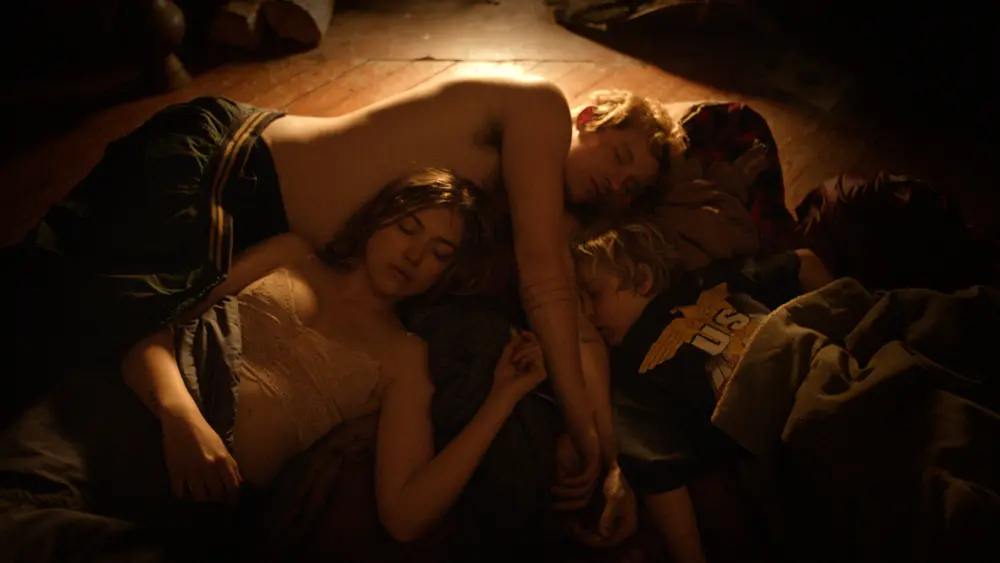Summary
Bleak and unsentimental, Mobile Homes is a social realist drama elevated by some fine performances, most notably from Imogen Poots who gives heart to proceedings.
In our increasingly fractured society where the wealth gap has never been wider, it is perhaps no surprise that we are seeing a growing list of films that explore the lives of people who are permanently in transit (see also The Florida Project and American Honey). As the title suggests, Mobile Homes is a film about impermanence, about life on the road and the elusive search for security in the form of a stable home. Released in 2018, this is the follow up to director Vladimir De Fontenay’s 2013 short of the same name.
The film stars Imogen Poots (Green Room, 28 Weeks Later) as Ali, who lives with her boyfriend Evan, played by Callum Turner (War and Peace, Green Room) and her 8-year-old son Bone (played by Frank Oulton, making his screen debut). Together they scrape a living by transporting and selling animals, selling drugs and committing other petty crimes. They feed themselves by dining and dashing and teach Bone to be an accomplice to their way of life. They long for security and a stable home but don’t appear prepared or equipped to work for it through conventional means. Eventually, after things go wrong at a cockfight, Ali and Bone escape to a community of people living in the titular mobile homes and begin to see the potential for life without Evan being there to drag them down.
The early scenes do much to show us just how wild their lifestyle is as they commit a series of small scale crimes. Disaster seems to lurk around every corner as the couple leave young Bone to his own devices, or involve him in progressively more dangerous schemes. At any moment you expect them to abandon him for good or for something truly disastrous to happen to them. The lives of the characters are permanently precarious, and you always feel that they are only one bad decision away from catastrophe. This is epitomized in an early scene where Ali and Evan cannot find Bone and instead of looking for him or sounding the alarm they simply shrug their shoulders and go to work, assuming they will find him later.

The film has very little by way of a score which serves to underline to the austerity of its character’s lives, making everything feel sparse and airy. The lack of score also magnifies the realism of the performances, all of the cast turn in strong work and make their characters three-dimensional, rounded people. Particular praise must go to Poots for her portrayal of Ali, a woman who does not appear to be bad but routinely makes bad decisions that have negative consequences and who elevates this drama and gives the film a heft that the sometimes meandering narrative does not earn.
Mobile Homes is relentless in its depiction of the rootless and unanchored life of its characters, walking a fine line between social drama and poverty porn. This slightly heavy-handed treatment of the material is fine but makes the positive beat at the end feel a bit tacked on and out of sync with the rest of the film. In the end, we are left hoping for the best for Ali and Bone, but not tremendously optimistic about it.




